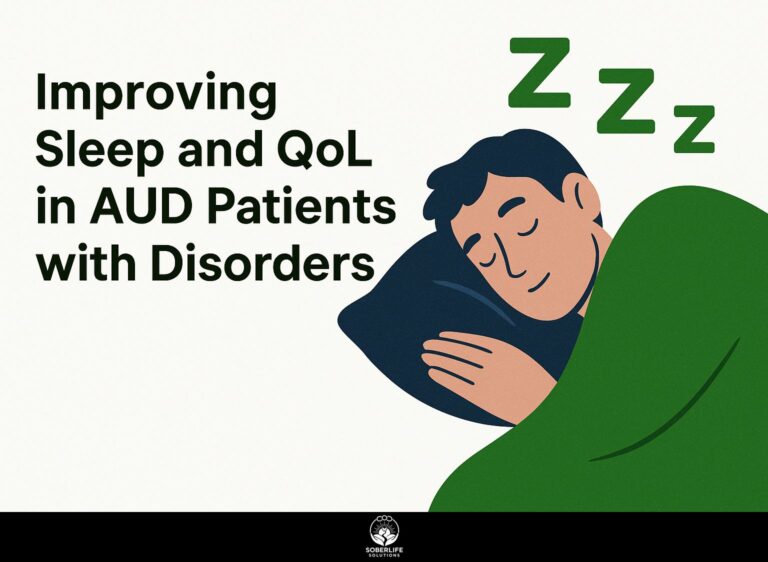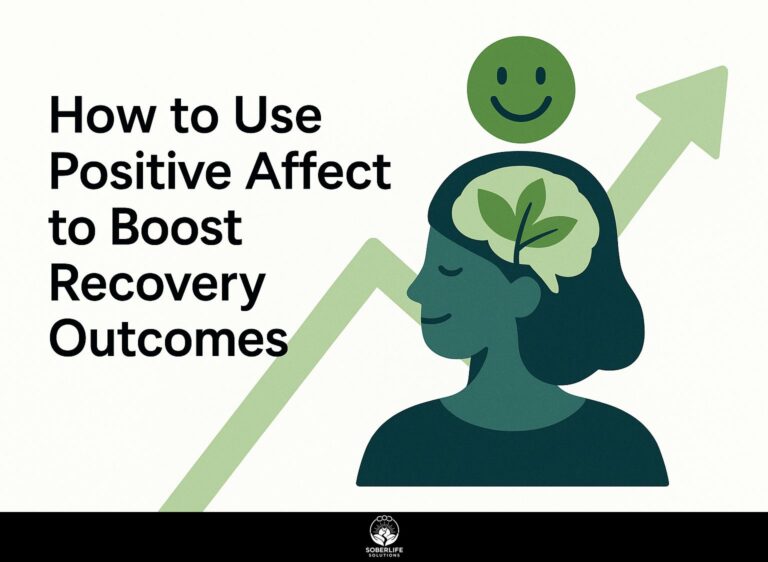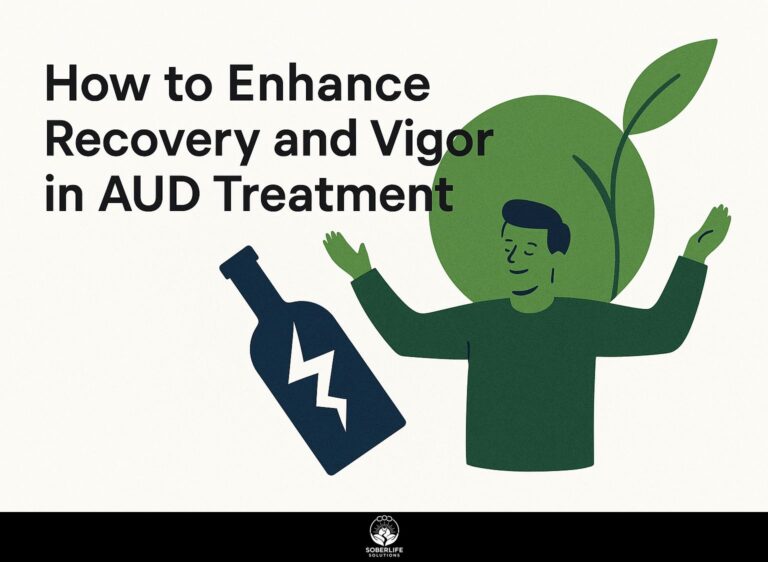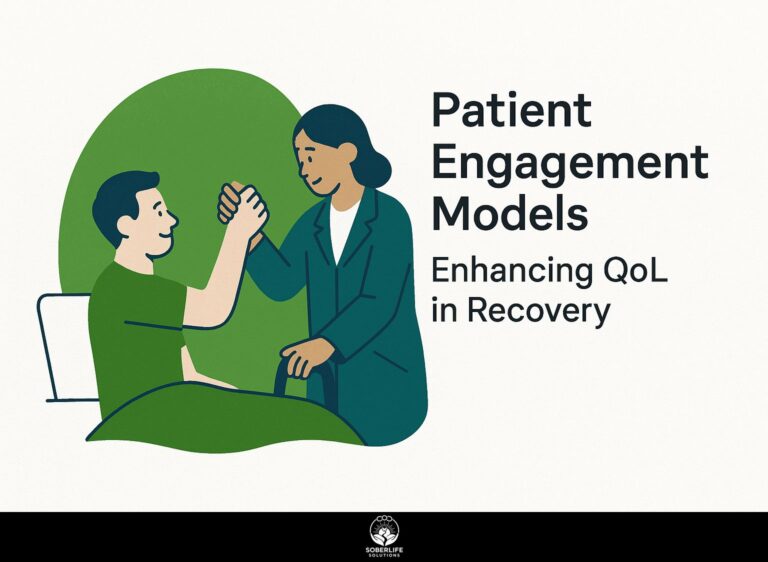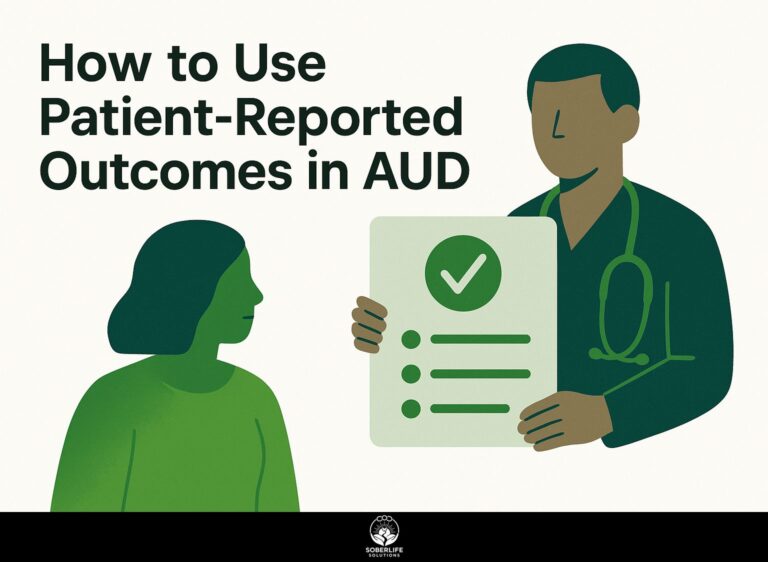How to Improve Quality of Life During Alcoholism Recovery
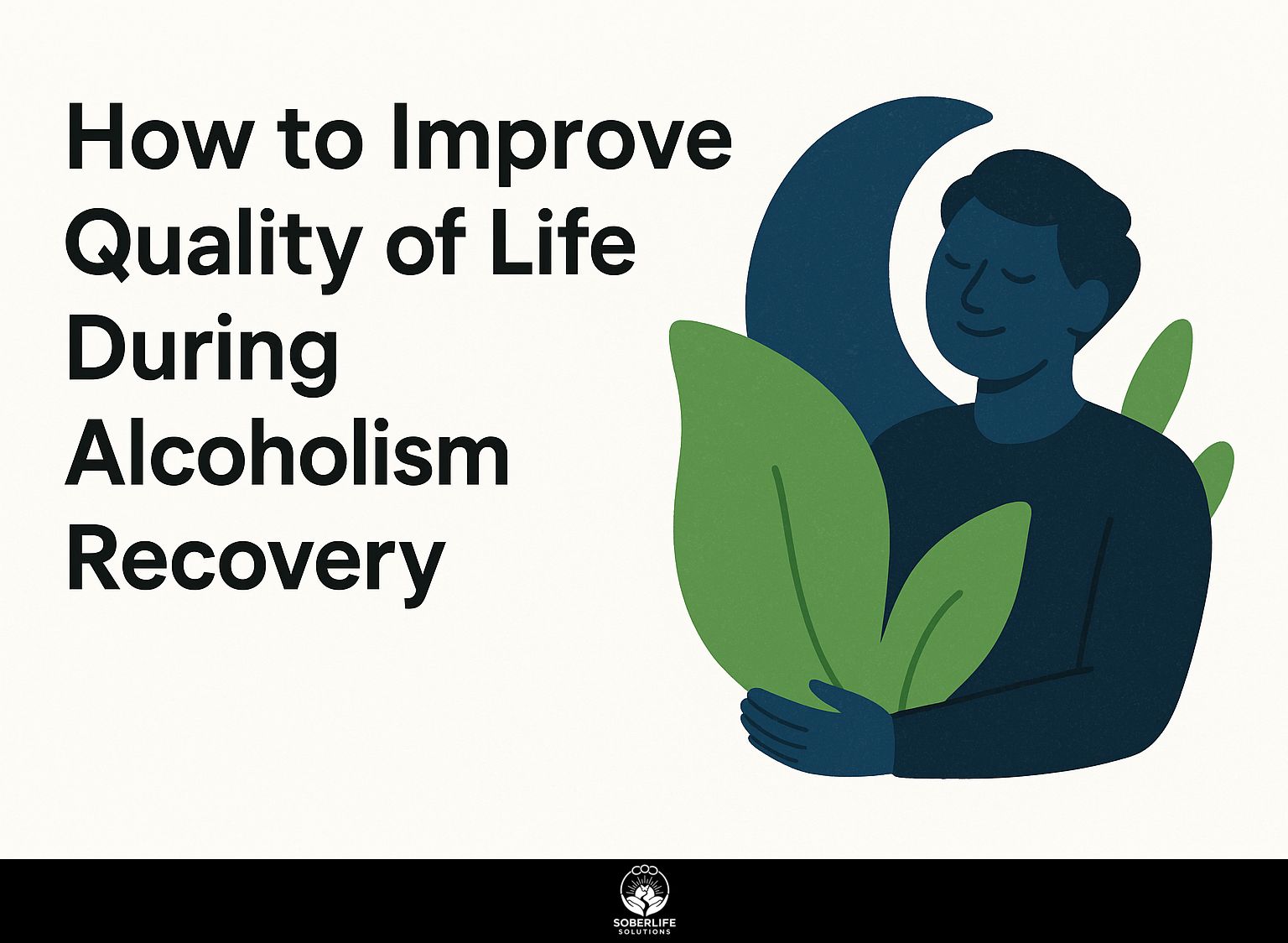
Getting better from alcohol addiction can be hard, but you can make your life better while doing it. By concentrating on positive feelings and following their medication schedule, people can improve their mental health while working through recovery. This article provides practical tips and resources to help you create a base for a satisfying and healthier life without alcohol. Learn how small adjustments can greatly improve your overall health.
Key Takeaways:
Understanding Alcoholism and Recovery
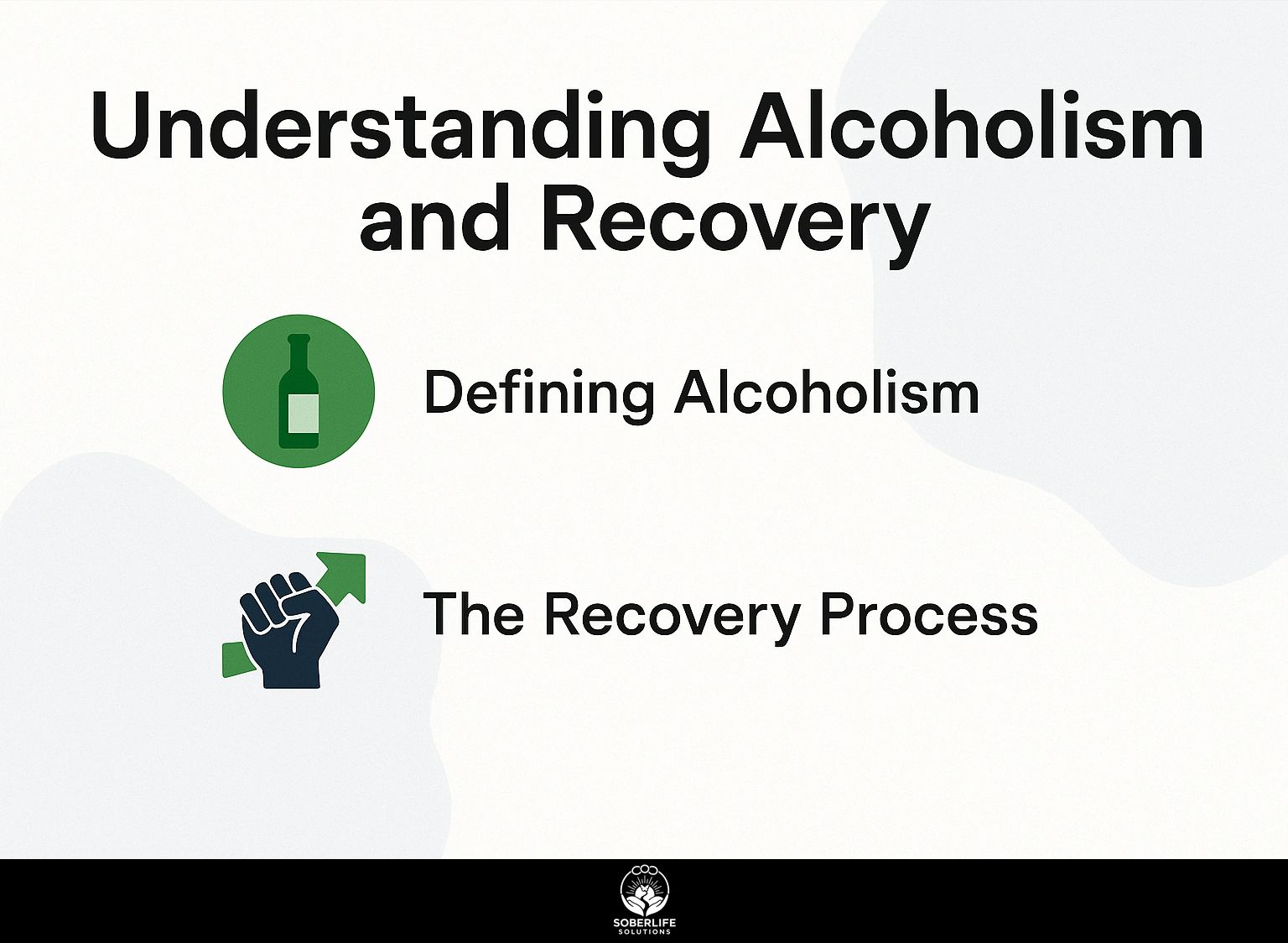
Recognizing alcoholism as a complicated condition is important for successful recovery. Research shows that treatment success rates improve by 30% when using complete support systems. A recent analysis published on ScienceDirect supports that comprehensive treatment approaches can significantly enhance recovery outcomes. For additional support, see also Holistic Therapies in Alcoholism Recovery: Techniques and Benefits which discusses effective methods to augment recovery strategies.
Defining Alcoholism
Alcoholism, or alcohol use disorder, is characterized by an inability to control drinking due to both physical and emotional dependence, affecting over 14 million adults in the U.S. per the National Institute on Alcohol Abuse and Alcoholism.
The World Health Organization says that drinking too much alcohol significantly increases the risk of developing health problems such as liver disease, heart conditions, and certain cancers.
Studies indicate that nearly 90,000 people die from alcohol-related causes in the U.S. each year. Successful treatment often hinges on early intervention, evidenced through indicators such as frequency of drinking and withdrawal symptoms.
Tools like the CAGE questionnaire can evaluate these areas, helping people find the right support, such as counseling or groups like Alcoholics Anonymous. The Centers for Disease Control and Prevention (CDC) provides detailed statistics on alcohol use and its impacts, which can be explored further in their FastStats on Alcohol Use.
The Recovery Process
The recovery process from alcohol use disorder often involves a combination of behavioral interventions and medication management, with studies showing a 40% increase in medication adherence in structured treatment programs.
To successfully go through recovery, think about the three main stages: before treatment, during treatment, and after treatment.
Before starting treatment, a thorough evaluation can find triggers and determine if the person is ready to change.
During the treatment phase, the COMBINE study shows that using naltrexone together with cognitive-behavioral therapy improves results. According to an article in the JAMA Network, such combined treatment approaches significantly enhance the likelihood of maintaining sobriety and minimizing relapse.
In the post-treatment phase, ongoing support through alumni groups or therapy can sustain sobriety.
Utilizing tools like recovery apps also aids in tracking progress and connecting with support networks, ensuring long-term success.
Establishing a Support System
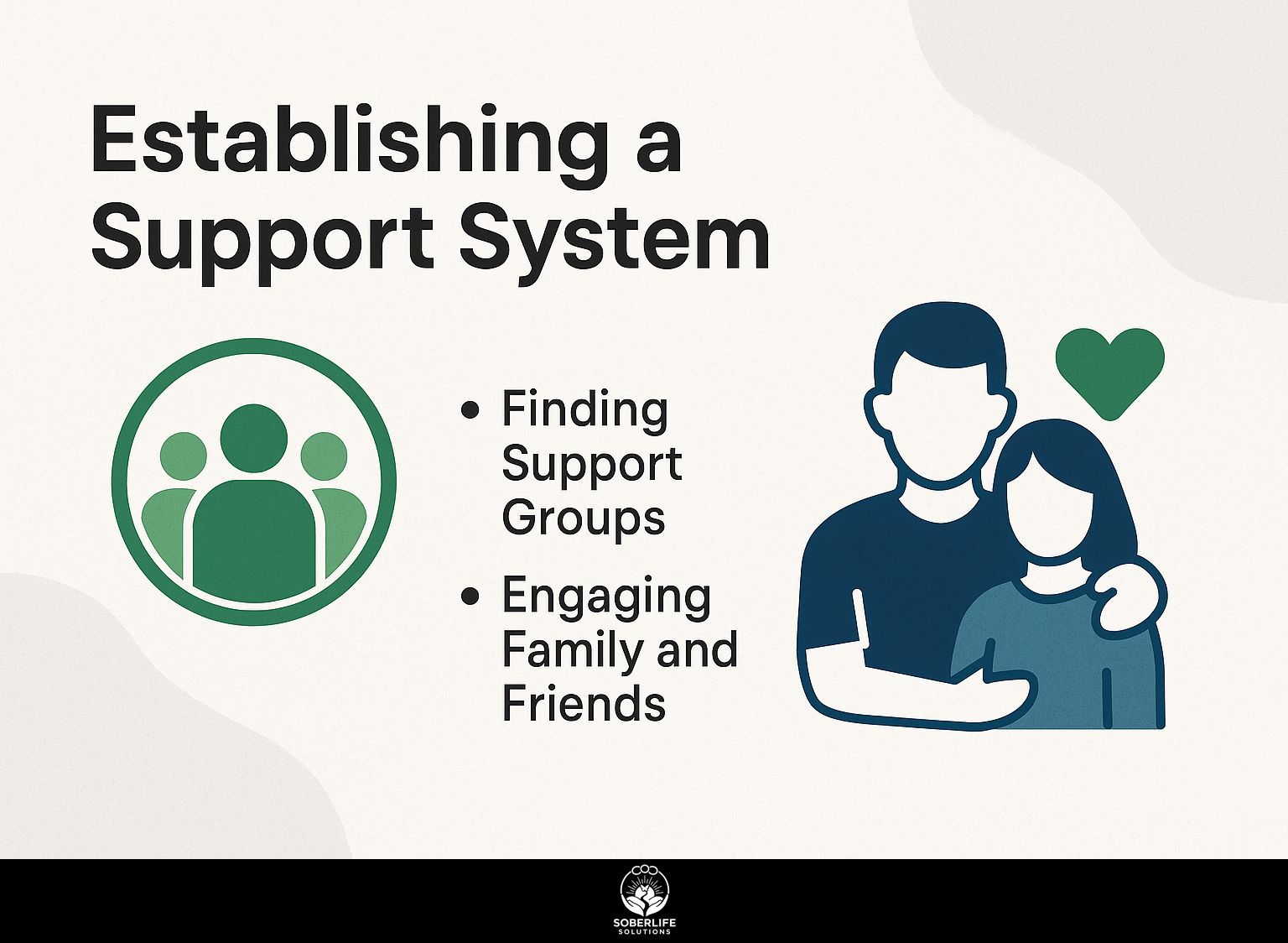
Creating a solid network of support greatly helps in recovery. People involved in support groups or with family have a 60% better chance of succeeding. To understand how these systems are structured and the various forms they can take, you might find our deep dive into sober support systems that help particularly insightful.
Finding Support Groups
Support groups like Alcoholics Anonymous (AA) provide essential social support, with over 2 million members worldwide, significantly contributing to recovery capital and community involvement.
Other helpful options include SMART Recovery, which centers on taking personal responsibility, and Refuge Recovery, which highlights being mindful during recovery.
Attendance at local AA meetings usually ranges from 5 to 20 people, creating a friendly and supportive atmosphere.
To find local meetings, visit the official AA website or search platforms like Meetup and Eventbrite.
Many organizations offer online support, with sites such as In The Rooms hosting virtual meetings, enabling access to a wider community regardless of location.
Engaging Family and Friends
Involving family and friends in the recovery process can improve social connections and reduce negative emotions, possibly decreasing relapse rates by 25% based on long-term studies.
To involve loved ones effectively, start with open communication about your needs and feelings. Being open helps build trust and knowledge.
Family therapy can be an excellent option; it allows family members to express concerns and learn how to support you appropriately.
Educational resources, like online webinars or local support groups, can provide knowledge to help you on your path.
Success stories abound-individuals who engaged their families often report increased motivation and a stronger sense of accountability, dramatically improving their recovery outcomes.
Developing Healthy Routines
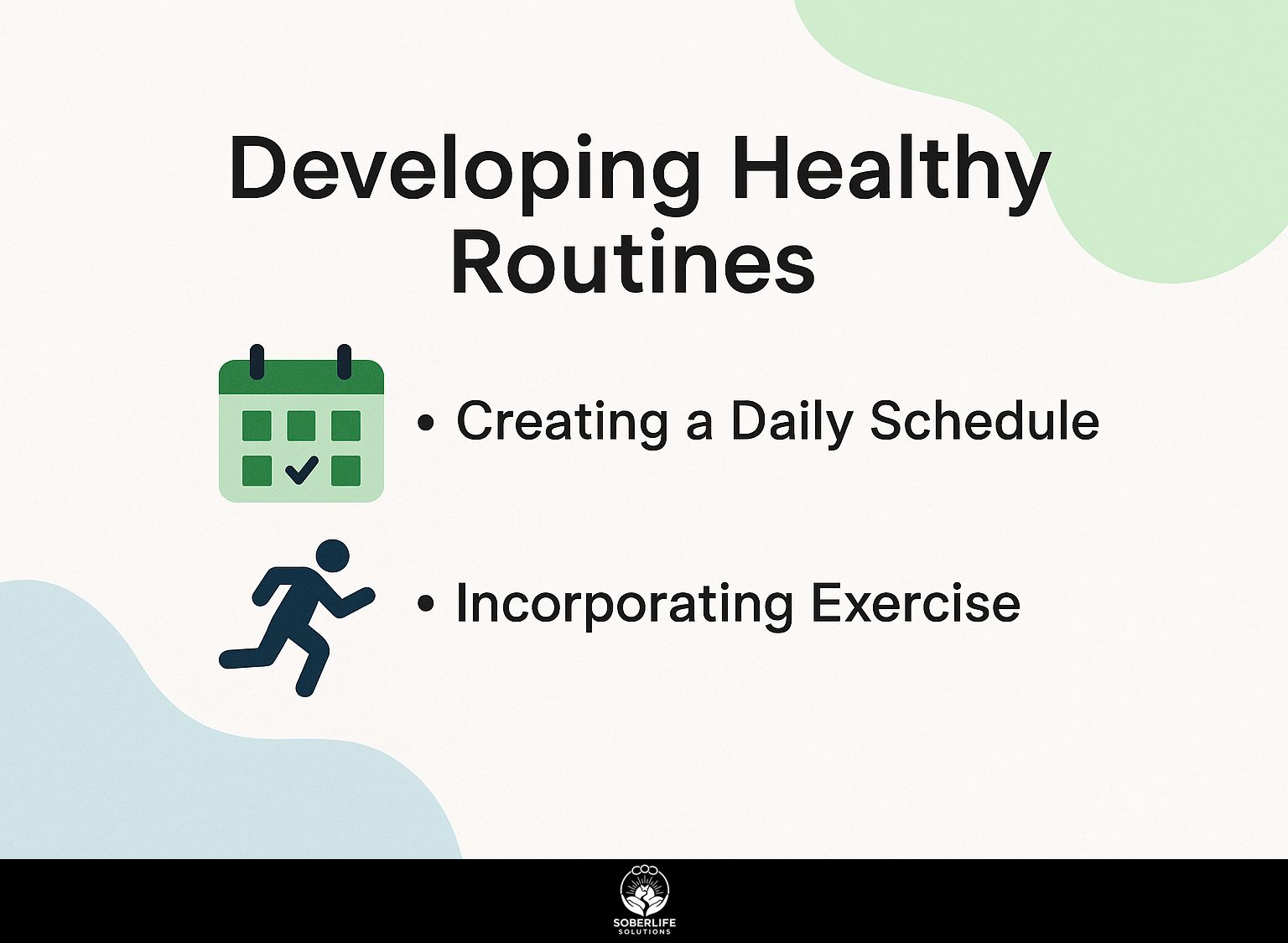
Creating healthy habits can greatly help in recovery. Sticking to a daily routine can improve mood and mental health. Learn more about effective apps for building new habits which can support your journey to sobriety.
Creating a Daily Schedule
Setting up a clear daily routine can lower stress and improve healing results. Experts suggest spending at least 8 hours on productive tasks each day.
To create an effective daily schedule, start by blocking out time for essential activities such as work, meals, and self-care.
Use tools like Google Calendar or Trello to visually organize your day. Prioritize high-impact therapy sessions or support groups in your schedule. Allocate at least 30 minutes for self-care activities like exercise or meditation.
Consider using downloadable templates to help structure your time blocks, ensuring you dedicate adequate focus to both productivity and personal well-being. This balanced approach can lead to a more fulfilling daily routine.
Incorporating Exercise
Incorporating regular exercise can lead to significant improvements in psychological health, with studies showing a 30% reduction in stress mediating changes among individuals participating in structured fitness programs.
Adding activities like yoga and running to your routine can improve both your mental focus and physical strength.
Yoga promotes mindfulness and flexibility, often available through local studios or platforms like Yoga with Adriene on YouTube. Running is good for your heart and helps lower stress. Apps such as Couch to 5K give easy guides for those just starting out.
Engage in these practices at least three times a week to maximize recovery benefits and restore a balanced mental state.
Nurturing Mental Health
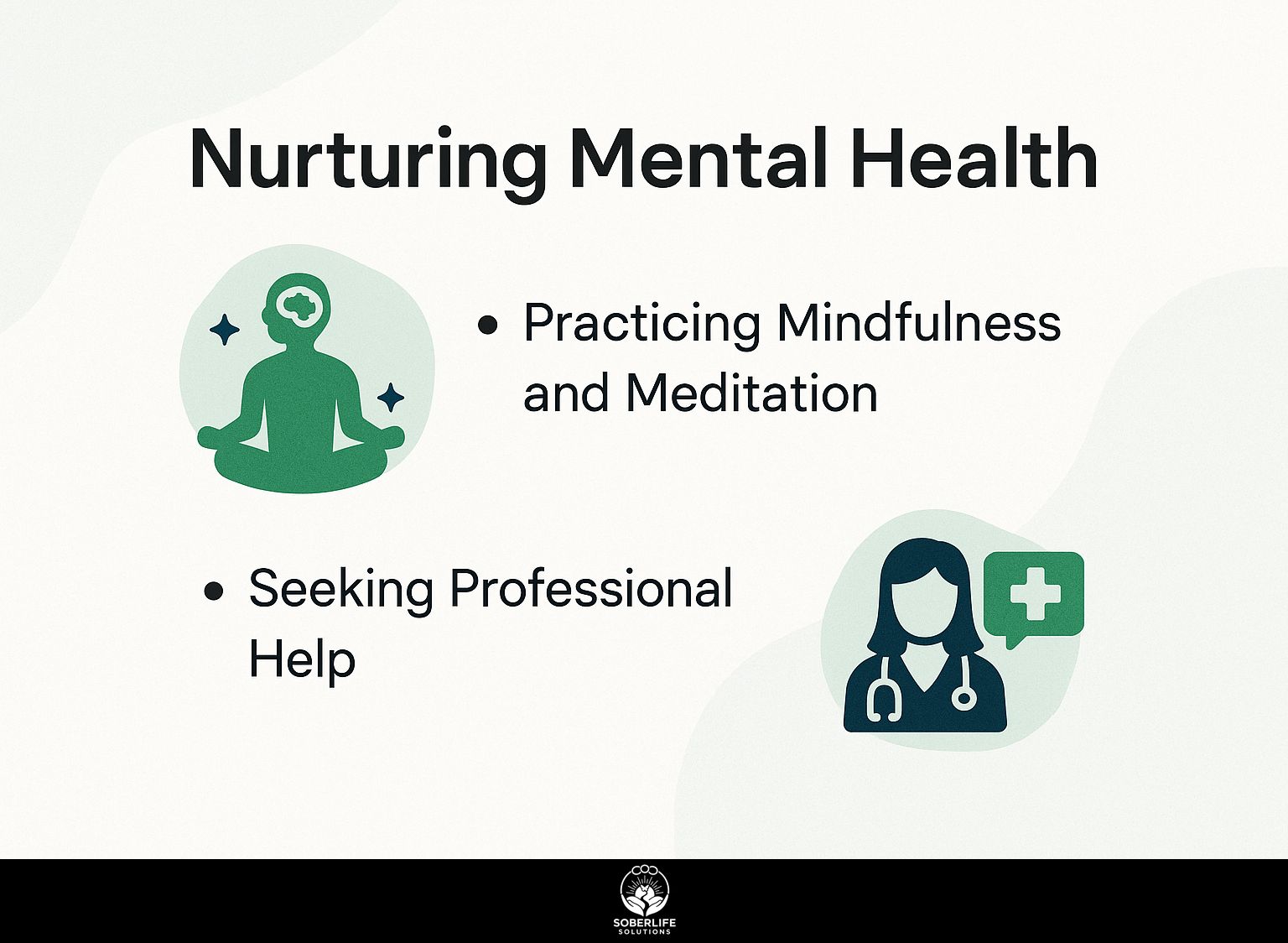
Looking after mental health is essential for recovery.
Mindfulness exercises can lower the chance of return by 40% when used with regular treatments. It is also insightful to understand how sobriety improves mental health as part of a comprehensive recovery plan.
Practicing Mindfulness and Meditation
Practicing mindfulness and meditation can improve emotional strength. A study from 2018 showed that 60% of participants were better at handling stress after 8 weeks of practice.
To start practicing mindfulness, try using apps like Headspace or Calm. They provide organized programs and daily notifications.
Incorporating just 10 minutes of meditation each day can significantly reduce anxiety and promote a sense of calm. Engaging in simple practices such as mindful breathing or body scans can further increase awareness and emotional stability.
Studies show that these methods help improve mental health and help people recover faster from emotional challenges by encouraging a more stable way of thinking.
Seeking Professional Help
Getting professional help is very important for recovery. People who have psychological evaluations are 50% more likely to succeed in treatment.
To find the right mental health professional, start by identifying the types of evaluations they offer. Common treatments often include cognitive-behavioral therapy (CBT), which focuses on changing negative thinking patterns; group therapy, which promotes peer support; and psychodynamic therapy, which deals with past experiences.
When evaluating therapists, consider these factors:
- Credentials
- Experience with your specific issues
- Therapeutic approach
Look for reviews or testimonials, and don’t hesitate to schedule a consultation to gauge their compatibility with your needs. This proactive approach increases the chances of a successful therapy relationship.
Building New Hobbies and Interests
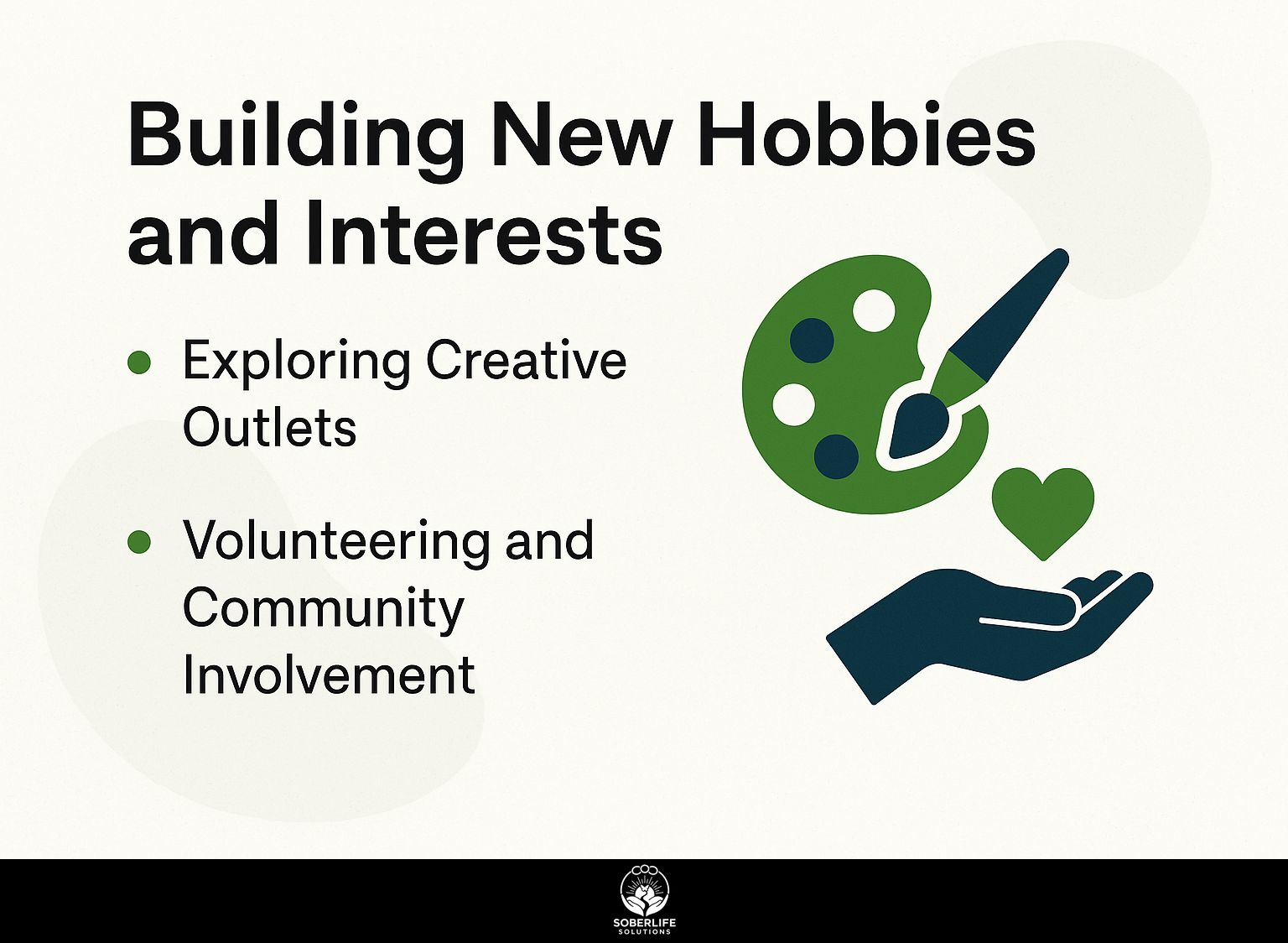
Trying out new hobbies and interests can greatly improve recovery experiences. Research shows that people participating in activities experience a 35% rise in positive feelings.
Exploring Creative Outlets
Participating in creative activities like art, writing, or music can improve mood and help reduce stress. In fact, 70% of people in art therapy say they feel fewer negative emotions.
Consider exploring various avenues such as painting, journaling, or playing an instrument. Local community centers often offer courses in these subjects, making it easy to start.
If you enjoy learning online, websites like Skillshare and MasterClass have classes for all skill levels, from beginner to advanced. Testimonials from past participants emphasize the soothing effects of painting sessions and the therapeutic nature of writing workshops.
Doing these activities helps you unwind and show your feelings, which supports emotional recovery.
Volunteering and Community Involvement
Volunteering can greatly improve recovery resources, with studies indicating that people involved in community service feel 50% more connected and purposeful.
To find volunteer opportunities, start by exploring platforms like VolunteerMatch, which connects you with local nonprofits in need of help.
Alternatively, consider reaching out to community centers, hospitals, or food banks directly for openings.
Local chambers of commerce often maintain lists of volunteer organizations as well.
Set realistic goals, like dedicating a few hours each month, to gradually build your involvement. Being involved regularly helps you feel included and supports your path to recovery.
Setting Goals for the Future
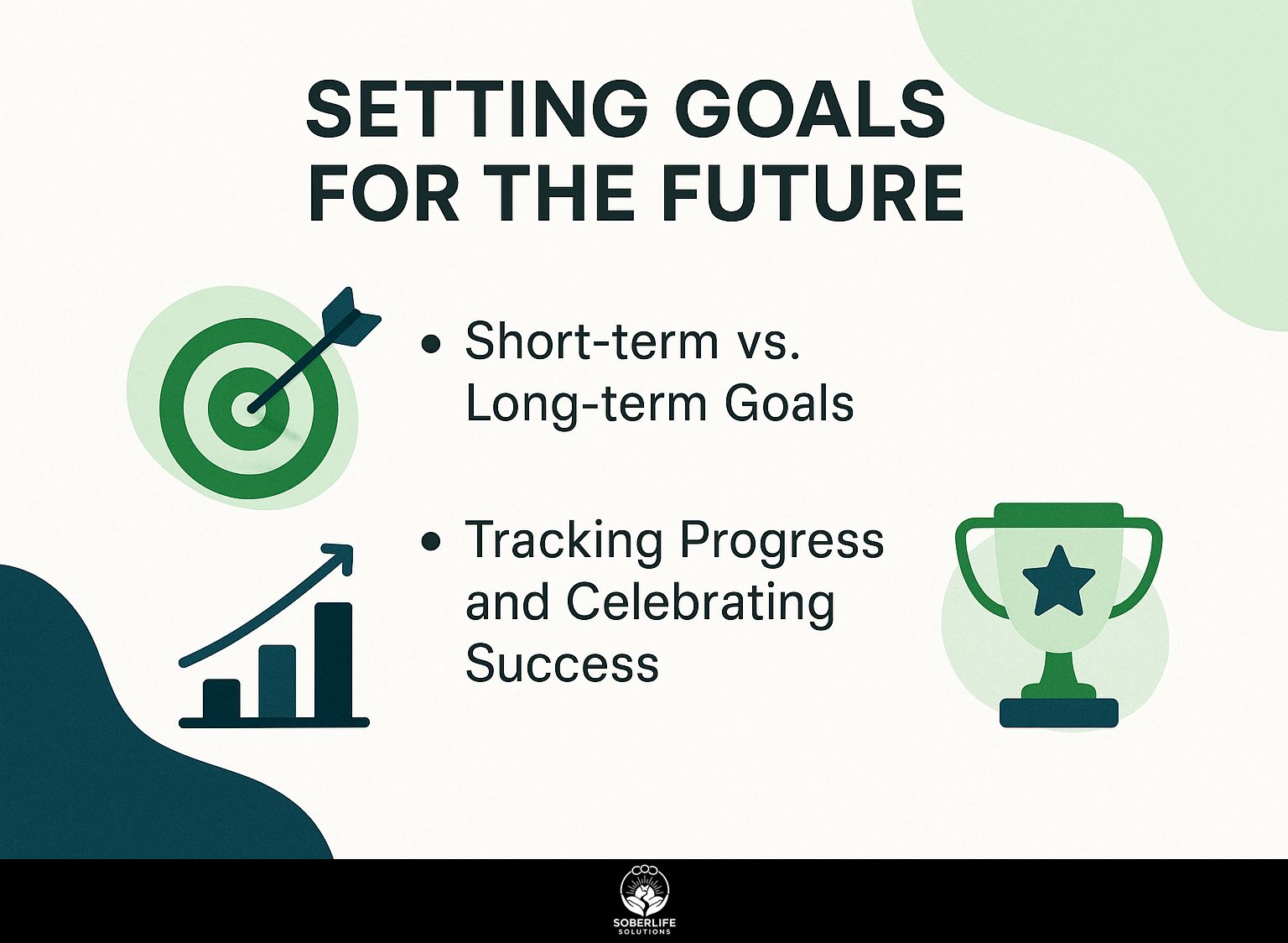
Research indicates that setting both short-term and long-term goals is important for recovery, as people who do this are 40% more likely to succeed. One effective technique to further enhance this process is journaling. By journaling your sobriety journey, individuals can track their progress and maintain motivation, making goal-setting even more impactful.
Short-term vs. Long-term Goals
Balancing short-term and long-term goals can create a roadmap for recovery, with many successful individuals recommending a structure that includes weekly and monthly objectives.
Start by setting a short-term goal, such as achieving a week of sobriety. This requires daily commitment and can be fortified by keeping a journal to track feelings and triggers.
For a long-term goal, consider aiming for one year of sobriety, emphasizing participation in support groups or therapy to maintain focus.
Setting SMART goals means making sure they are specific, measurable, attainable, relevant, and time-bound. Attend the weekly meeting every Monday instead of only planning to be more involved.
Tracking Progress and Celebrating Success
Keeping track of recovery progress and celebrating achievements can increase motivation. People who recognize their achievements report feeling 30% more satisfied with their progress.
- To effectively track your recovery, consider using apps like Sober Grid, which offers community support and milestone tracking, or simple journaling to note daily feelings and achievements.
Engaging in frequent reflections helps to identify patterns in your progress. Make it a habit to celebrate small victories, whether that’s treating yourself to a favorite meal or sharing your success with friends.
Acknowledging progress improves morale and reinforces your commitment to recovery, giving importance to every effort.
Frequently Asked Questions
How can I improve my quality of life during alcoholism recovery?
One way to improve your quality of life during alcoholism recovery is by focusing on self-care. This can include doing things that make you happy, being mindful, and getting help from family and friends.
What are some tips for maintaining a healthy lifestyle during alcoholism recovery?
Some tips for maintaining a healthy lifestyle during alcoholism recovery include exercising regularly, eating a balanced and nutritious diet, getting enough sleep, and avoiding triggers that may lead to relapse.
How can I improve my relationships during alcoholism recovery?
Improving your relationships during alcoholism recovery can involve communication, setting boundaries, and working on rebuilding trust. It’s also helpful to get support from family and friends and join therapy or support groups together.
What are some ways to cope with cravings during alcoholism recovery?
Some ways to cope with cravings during alcoholism recovery include finding healthy coping mechanisms like exercise, mindfulness, and engaging in hobbies or activities. It’s also important to have a support system in place to talk to when cravings arise.
How can I maintain a positive mindset during alcoholism recovery?
Maintaining a positive mindset during alcoholism recovery can involve practicing gratitude, setting achievable goals, and celebrating small victories. It’s also important to surround yourself with positive and supportive people.
What are some resources I can use to improve my quality of life during alcoholism recovery?
There are many resources available to help improve your quality of life during alcoholism recovery, such as therapy, support groups, online resources, and self-help books. Talk to your doctor for personalized guidance.

